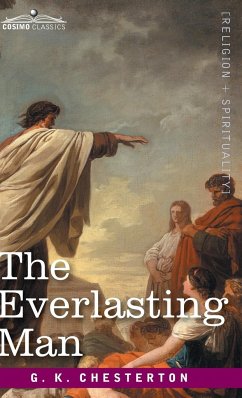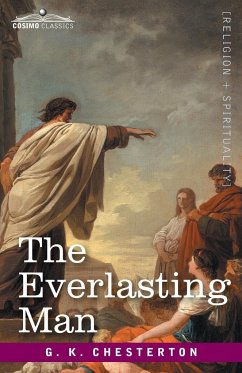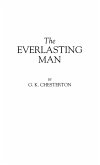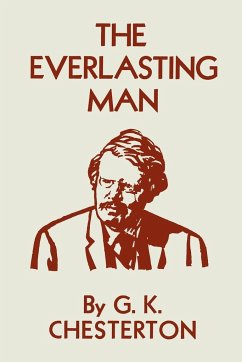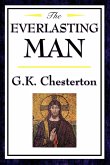"Mr. Chesterton has a quite unusual power of seeing the obvious, and it is quite true that many learned men seem to have lost that power." -The Times Literary Supplement (1925) The Everlasting Man (1925) was written by G. K. Chesterton as an apologia for Christianity. Many believe Chesterton wrote it to refute H. G. Wells's book, Outline of History, in which Wells claimed our current civilization evolved from animal life, and Christ was merely a charismatic leader. This book also reflects Chesterton's early opposition to eugenics at a time when it was very fashionable, arguing on behalf of the spiritual growth of humanity, or at least of Western civilization.

